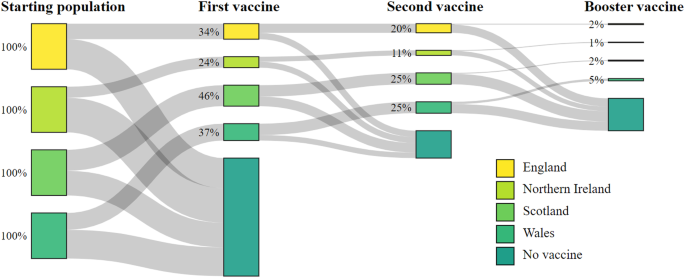2024-03-18 バーミンガム大学
<関連情報>
- https://www.birmingham.ac.uk/news/2024/removal-of-incorrect-penicillin-allergy-labels-by-non-specialist-healthcare-professional-feasible
- https://www.journalofinfection.com/article/S0163-4453(24)00034-3/fulltext
非アレルギー専門医療従事者によるペニシリンアレルギー「低リスク」患者のラベル解除におけるペニシリン直接経口チャレンジの実行可能性を調査する多施設観察研究(SPACE研究): 医療システムへの示唆 A multicentre observational study to investigate feasibility of a direct oral penicillin challenge in de-labelling ‘low risk’ patients with penicillin allergy by non-allergy healthcare professionals (SPACE study): Implications for healthcare systems
Mamidipudi Thirumala Krishna,Rashmeet Bhogal,Bee Yean Ng,…,Caroline Thomas,Siraj A. Misbah
Journal of Infection Published:February 06, 2024
DOI:https://doi.org/10.1016/j.jinf.2024.01.015
Highlights
- Non-allergy healthcare professionals can safely perform direct oral penicillin challenges.
- A high proportion of patients did not progress in the study pathway.
- Outpatient settings offer greater opportunities for penicillin allergy de-labelling.
- Multi-pronged strategies are needed in the patient pathway to enhance uptake.
Summary
Objective
The huge burden of inaccurate penicillin allergy labels (PALs) is an important driver of antimicrobial resistance. This is magnified by insufficient allergy specialists and lack of ‘point-of-care’ tests. We investigated the feasibility of non-allergy healthcare professionals (HCPs) delivering direct oral penicillin challenges (DPCs) for penicillin allergy de-labelling.
Methods
This prospective observational study was conducted in three hospitals in England across three settings (acute medical, pre-surgical and haematology-oncology). Patients with a PAL were screened and stratified as low risk/high risk. Low risk patients (non-immune mediated symptoms, benign rash, tolerated amoxicillin since and family history) underwent a DPC.
Results
N = 2257 PALs were screened, 1054 were eligible; 643 were approached, 373 declined, 270 consented and 259 risk stratified (low risk = 155; high risk = 104). One hundred and twenty-six low risk patients underwent DPC, 122 (96.8%) were de-labelled with no serious allergic reactions.
Conversion rate from screening-to-consent was 12% [3.3% and 17.9% in acute and elective settings respectively; odds ratios for consent were 3.42 (p < 0.001) and 5.53 (p < 0.001) in haematology-oncology and pre-surgical setting respectively. Common reasons for failure to progress in the study included difficulty in reaching patients, clinical instability/medical reasons, lacking capacity to consent and psychological factors.
Interpretation
DPCs can be delivered by non-allergy HCPs. A high proportion of patients with PALs did not progress in the study pathway. Strategies to deliver DPC at optimal points of the care pathway are needed to enhance uptake. Elective settings offer greater opportunities than acute settings for DPC. The safety and simplicity of DPCs lends itself to adoption by healthcare systems beyond the UK, including in resource-limited settings.
Graphical abstract



